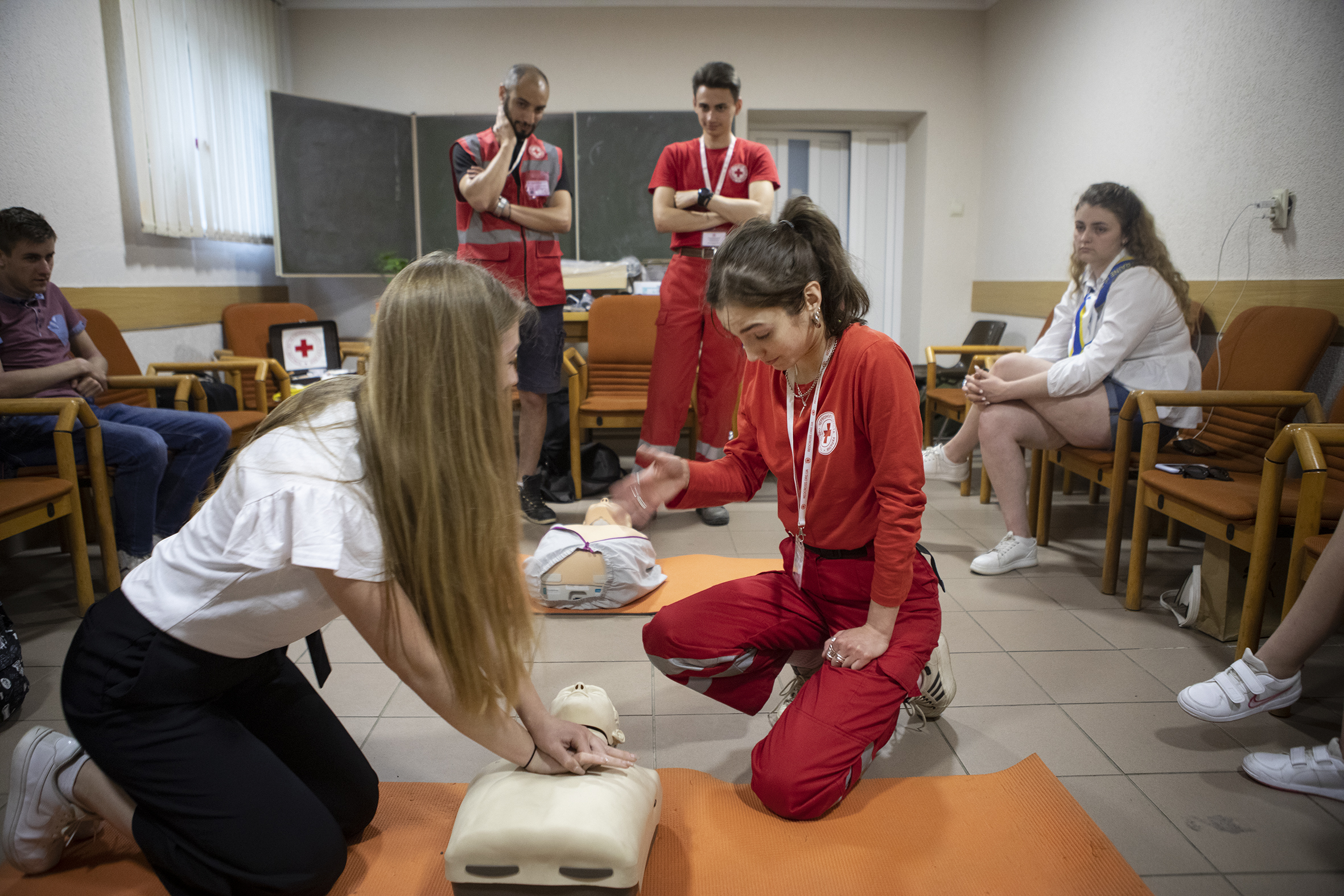A collaborative response to address the needs of people displaced by the Ukrainian conflict
With 7.5 million people having fled Ukraine and 7.1 million internally displaced, the International Red Cross and Red Crescent Movement has scaled up its assistance and cross-border collaboration to respond to the humanitarian needs of those affected. Movement partners are supporting the Ukrainian Red Cross and National Societies in neighbouring countries by providing principled humanitarian assistance, strengthening response capacities and deploying delegates with relevant technical expertise. Activation of our global surge network has seen more than 200 people deployed to Ukraine, Poland, Slovakia, Hungary, Romania, Russia, and Moldova from 25 National Societies and the International Federation of Red Cross and Red Crescent Societies (IFRC). At the same time, the Red Cross is working to address the needs of people arriving in other countries, both in Europe and beyond.

The EU and Member States have also offered significant assistance in the country and wider region. On 15 February, Ukrainian national authorities requested support from the EU Civil Protection Mechanism (UCPM) in view of the large-scale emergency developing and its significant impact on the civilian population. Since then, the European Commission’s Emergency Response Coordination Centre (ERCC) received several requests from Ukraine, neighbouring countries and international organisations. This triggered the largest UCPM operation to date and one of the most logistically complex.
In addition, the European Humanitarian Response Capacity (EHRC) was deployed for the first time. This has included the establishment of logistic capacities, with three hubs across Moldova and Ukraine offering warehouse facilities and transport resources to the humanitarian community. As the EHRC continues to develop, it will be essential to ensure good complementarity with the existing capacities of humanitarian partners, seeking to add value and fill gaps. Indeed, Red Cross operational managers have been coordinating closely with EU civil protection teams on the ground to ensure a coherent response that prioritises the most pressing humanitarian needs and avoid duplication. Similarly, an IFRC liaison officer was deployed to Brussels and partly embedded into the ERCC to enhance operational coordination and collaboration through regular information exchange, focusing on logistics and relief items, scenario planning and analysis, amongst others.
Despite the advancements of the European disaster management framework, the operation in response to the Ukraine crisis has shown that substantial legislative preparedness is still needed at national level. In some cases, insufficient legal preparedness, including to receive international assistance, has slow down the emergency response and wasted valuable resources. Disaster laws make communities safer, facilitate assistance, and improve the protection and inclusion of the most vulnerable people when faced with a crisis.
The upcoming European Civil Protection Forum on 28-29 June will be an important opportunity to exchange with the European civil protection and wider disaster response community to take stock of the first lessons learnt from this ongoing crisis. With massive and increasing humanitarian needs, the situation requires further mobilisation of all possible response instruments, in line with their respective mandates.
Crucially, emergency assistance coming through non-humanitarian channels and aiming at addressing humanitarian needs should abide by humanitarian principles and standards and be coordinated with existing mechanisms. All relevant actors, be it government, regional or local institutions, as well as local NGOs and volunteer groups, need to work in a coordinated and complementary manner by enhancing common preparedness efforts and increasing their knowledge of each other’s ways of working.
This report provides an overview of how the International Red Cross and Red Crescent Movement has responded to the Ukraine and impacted countries crisis between February and May 2022.
For media inquiries, please contact Eva Oyón on: eva.oyon@redcross.eu or +32 2 235 09 22

